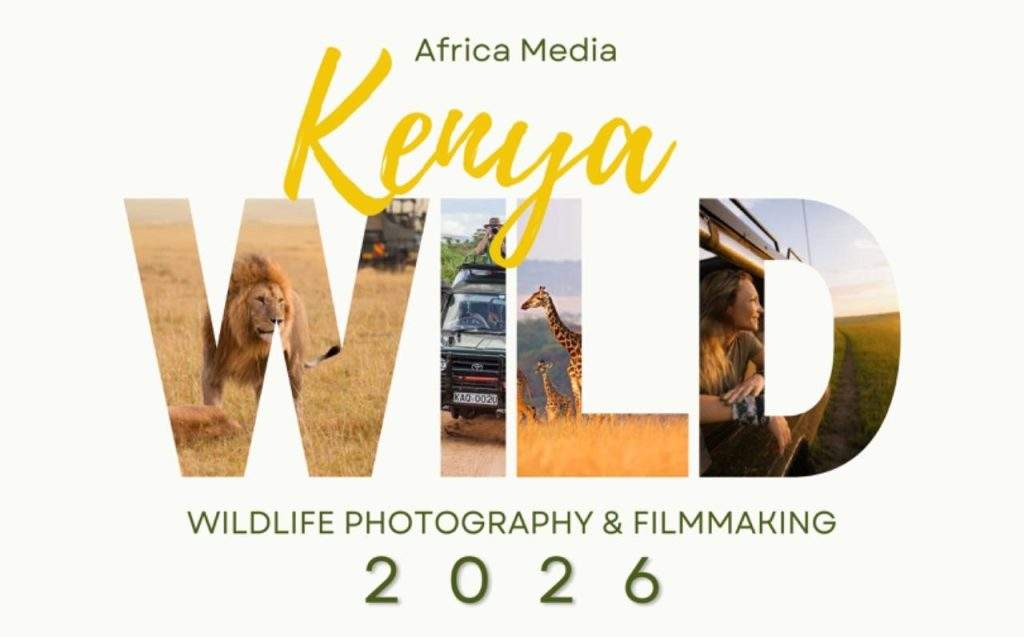
How to become a wildlife cameraperson – Part 1: The job
Almost every intern and student that joins Africa Media on our wildlife filmmaking internship program has a quest – to become a wildlife cameraperson. This highly glamorised job offers incredible opportunities to travel the world and document the marvels of our natural world and wild places. It is however, a highly challenging and demanding job that is often not quite as glamorous as is made out. However, for adventurers and explorers who want to embrace the ups and downs of this career and want to become a wildlife cameraperson, I humbly offer some guidance.
UW Camera - Andy Casagrande
Camera operator Doug Allan
Student Intern
What is the job? – the good and the bad
The initial consideration is that it is only one of many jobs within the wildlife filmmaking industry. More importantly, the wildlife cameraperson only works during one section of producing a wildlife documentary (thereby only having earning potential during that phase).
A wildlife documentary production involves (a) pre-production, (b) production and (c) post production. Now, strictly speaking the role of the camera operator is limited to the production phase of project. This is the phase where the crew travel to a (usually) exotic location and collect the media content for a wildlife documentary. During the planning phase, a camera operator may be asked to supply stock footage for the pitch or be asked advice on where and when to capture content; but has no formal revenue earning role in this part of the production. Similarly when the producers, editors, sound engineers, narrators and director are pouring over the footage during post production, the camera operator has no definitive revenue earning role.
In my opinion it is vital a specialist camera operator should accept that their revenue earning potential is directly related to the number of days away from home they are willing to sacrifice. Whilst this is wonderful for single, young students, when you have a family and children, this can put many additional pressures on you. As a result many camera operators ‘moonlight’ in the corporate and commercial fields. This enables them to work around their family commitments and the desire to be at home more often. Alternatively, they develop diverse skills that allow them to contribute to the pre-production and post-production phases of a documentary (e.g. researcher, director, editor, producer etc.). With this in mind, here is an outline of the ‘good the bad, and the ugly’ (with apologies to Sergio Leone) of a wildlife camera operator’s job.
Download FREE eBook featuring 40 proven fundraising techniques to finance your next overseas experiential adventure
- The Good – The wildlife cameraperson’s job is to collect the media content on a documentary using one or more cameras. This means they are constantly near the action and using the various functions of the camera to collect sharp, stable, focused video images of the entire show. This further means that the camera operator will travel to where the action is, and will be the highest priority crew member (in addition to the talent) to view and observe the wildlife during shooting. Sitting with a camera operator at a braai (South African term for a BBQ) makes for interesting conversation. Whilst they are typically intense and quiet folks, once the stories start flowing, their knowledge of the world and what they have seen will leave you absolutely amazed. It is a life reserved for the lucky few, one of witnessing the wonders of the natural world, and getting paid to do it.
- The Bad – The camera operator is not only responsible for collecting great action, they are responsible for collecting ALL the video content, including sunrises, time lapses, sunsets, and the dreaded B-roll (the non-action cutaways that makes the editor’s job easy). Thus the camera operator works the longest hours in the crew, getting up early to catch the sunrises and going to sleep after the moon rises and star trails. In addition, most camera operators on wildlife shoots are responsible for managing the data on site. This involves downloading, storing and securing all content daily. Then after all this, camera operator must get the cameras ready for the next day – charging batteries, cleaning kit, and ensuring everything is working and ready… This obviously involves long long hours on production in addition to just filming the fun stuff. Another unique difficulty with being a wildlife camera operator is that wild animals usually don’t play along. They are far worse at this, even than actors. Producers and directors can easily develop a shot list – animal stalks from left to right, chases prey, jumps on preys, kills prey etc. However, when you are out in nature, camera operators quickly see that wild animals typically do as they please,when they please. This can result in hours and hours, days and days of waiting, often with little or no success. So, alongside the incredible highs are incredible lows and the disappointments of missing the vital shot. This could ultimately include having awkward conversations with producers and directors.
- The Ugly – Most of the time a wildlife cameraperson is strictly behind the camera. They are usually doing the hardest work, filming a human (think Steve Irwin) interacting with wildlife. Who do you think laps-up the public adoration when the show goes to air? Certainly not the hard working camera operator. Think of Bear Grylls’s camera operator – who is he (or she) – I actually think there could be a Facebook support group for this poor soul who works harder and longer than anyone can imagine but remains a total unknown.
There you have it, the good the bad and the ugly of a wildlife cameraperson. In part two, I am going to introduce the skills and training you need to master the wildlife camera operator’s job. I hope you found this useful, and to any camera operator out there, feel free to add any good, bad or ugly parts that I have missed!
Blogger Profile - Ryan Johnson
Ryan is a well known wildlife film maker and shark biologist located in MosselBay, South Africa. His work is highlighted as researcher, television host, camera operator and scientist on shark and marine documentaries for international broadcastors including National Geographic Network.
Kickstart your wildlife media career!
Find your perfect wildlife media speciality program




